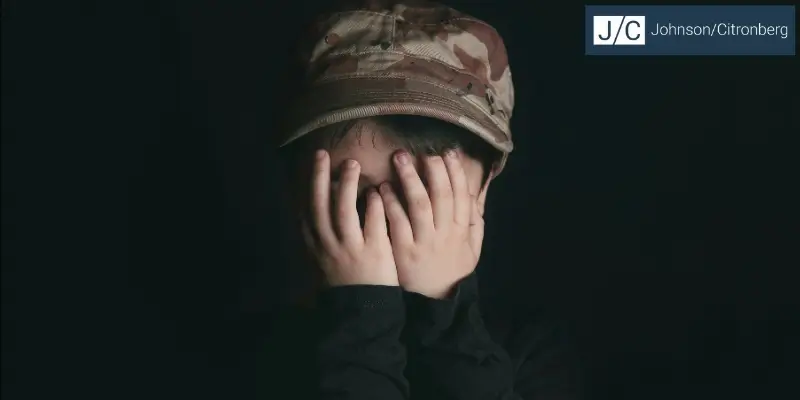|
|
Last Modified on Dec 31, 2024
The federal child pornography sentencing guidelines laid out under Sections 2252 and 2252A of the U.S. Code define specific crimes related to child sexual exploitation and their associated penalties. Such offenses covered include the possession, distribution, receipt, and production of child pornography. By understanding the penalties associated with federal child pornography crimes, individuals facing charges can protect their rights and interests. An experienced child pornography lawyer can help you to understand the laws which can act in your favor.
Understanding Child Pornography Violations Under the U.S. Code
Federal Code defines and prohibits crimes related to the sexual exploitation of minors, such as the possession, production, distribution, and receipt of sexually explicit content displaying people under the age of 18. A breakdown of the crimes listed includes:
- Possession of child pornography. It is against federal law to intentionally access or possess child pornography. Child pornography content can include magazines, digital files, and books that show people under 18 engaged in sexual behavior.
- Receiving or distributing child pornography. Receiving or distributing child pornography is federally criminalized. This includes digital files shared via the internet, even if the sender and receiver are both located in the same state.
- Transporting or shipping child pornography. Knowingly transporting or shipping pornography through any means of interstate or foreign trade is strictly prohibited under federal law.
- Selling child pornography. Selling or possessing visual depictions of minors displayed in a sexually explicit manner with the intent to sell is a serious crime. Federal charges can be brought forward for child pornography crimes that involve the transport, mailing, or production of child porn using tools transported internationally or across state lines.
Federal Penalties for Child Pornography Crimes
The criminal penalties for violating crimes listed under Sections 2252 and 2252A are severe. Penalties may vary based on the severity of the offense and whether the offender has been convicted for similar crimes before. Specifically, penalties for federal child pornography crimes include the following:
-
- Possession of Child PornographyUnder Section 2252A, an individual who knowingly possesses or accesses child pornography with the intent to view it can face a penalty of up to 5 years in prison if they are being charged for the first time. If the digital or visual depiction shows a minor under the age of 12, the defendant can face an increased prison sentence.Individuals with prior convictions for child pornography or other sex offenses involving minors may face increased penalties. These individuals can face a minimum sentence of 2 years with a maximum sentence of up to 10 years.
- Transporting, Receiving, or Distributing Child Pornography
The penalties for violating or attempting to violate federal statutes regarding the transport, receipt, receipt, distribution, shipping, and sale of child pornography include a maximum of 15 years in federal prison and heavy fines. Repeat offenders of crimes related to child pornography or child sexual exploitation can face a mandatory minimum prison sentence of 5 years, with the potential to spend up to 30 years in prison.
Aggravating Factors in a Federal Child Pornography Case
Certain factors of a case can lead to more severe penalties for people who have been convicted of a federal child pornography crime. Cases involving materials showing a child under the age of 12 come with more severe prison sentences. The use of a computer to receive, distribute, or possess child pornography can also lead to harsher penalties. Furthermore, repeat offenses can significantly increase the severity of penalties, including mandatory minimum sentences.
Additional aggravating circumstances could potentially include the exploitation of multiple children, the defendant’s involvement in organized crime, or the presence of material that is especially disturbing or graphic. These factors can all influence how a prosecutor approaches a case.
FAQs
What Is Section 2252A of the U.S. Code?
Section 2252A of the U.S. Code is a federal law that defines crimes related to the sexual exploitation of children under 18 and lists the subsequent penalties of a conviction. The crimes mentioned include the possession, production, distribution, and receipt of child pornography. Under this statute, child pornography crimes are heavily penalized, carrying hefty fines and lengthy prison sentences. If you are facing charges for these crimes, it is vital that you contact a lawyer.
What Are the Penalties for Transporting or Distributing Child Pornography?
Under federal law, anyone who distributes, receives, or transports child pornography can face up to 15 years in prison. As with any crime, there are factors that could affect the severity of penalties. If the defendant has an existing criminal history, with a prior conviction for a crime related to child exploitation, they may face a minimum sentence of 5 years in prison or a maximum of 30 years.
What Are the Penalties for Possessing Child Pornography?
The penalties for possessing child pornography include a maximum prison sentence of 5 years for first-time offenders. If the defendant has any prior criminal convictions for related crimes, they can face a mandatory minimum sentence of 2 years and a maximum prison sentence of 10 years. Furthermore, additional factors, such as the nature of the offense and the presence of any aggravating elements, can significantly influence the final sentence imposed by the court.
What Constitutes Child Pornography Under Federal Law?
Under federal law, child pornography is any visual depiction that displays a minor carrying out sexually explicit behavior. Child pornography can include videos, photographs, digital images, drawings, or similar depictions. Any child pornography material that is transferred through interstate commerce, mail, via the internet, or through other electronic means can implicate the accused in a federal child pornography crime.
Obtain Skilled Defense Against Your Federal Child Pornography Charges
If you are facing federal charges for child pornography crimes, you have been implicated in a serious crime that can drastically change the rest of your life. In addition to hefty fines and prison sentences, mandatory registration as a sex offender can dictate where you live and work. A skilled criminal defense lawyer from Johnson/Citronberg is here to help you fight back against your charges today. Contact us to start discussing your case so we can mount a strong defense.





